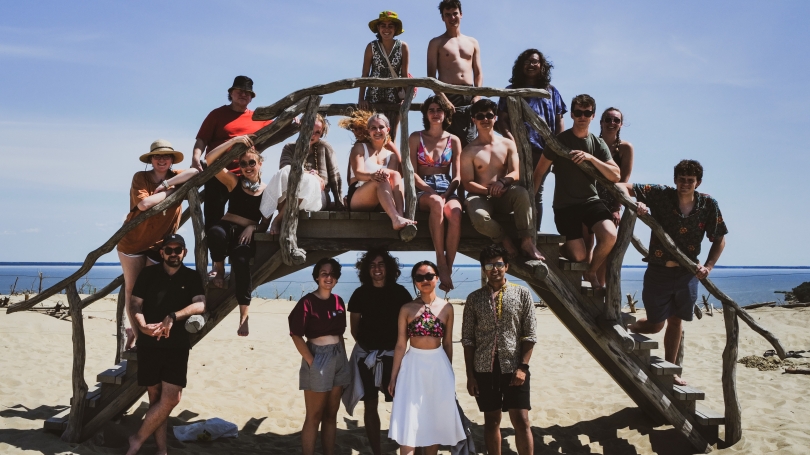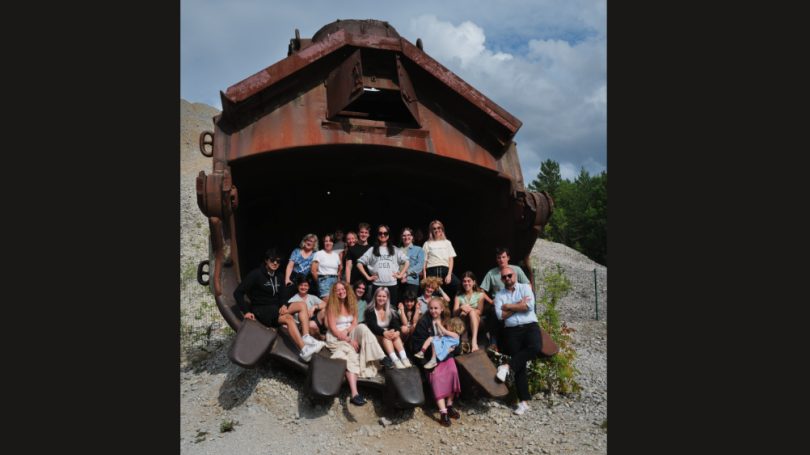
Government-Energy Baltics LEAP
Riga, LatviaTallinn, EstoniaTartu, EstoniaVilnius, LithuaniaTHIS PROGRAM IS OFFERED IN ASSOCIATION WITH THE RUSSIAN LSA+
ABOUT THIS PROGRAM
The Department of Government and the The Arthur L. Irving Institute for Energy and Society are developing a new program in the Baltics. The Baltic countries, all EU member states, provide a fascinating learning laboratory for studying evolving governance strategies, energy transitions, and the dynamics of language and culture. The unique perspective of these Baltic nations results from their distinctive geographic location, positioned between Europe, Scandinavia, and Russia.
All students in the program will take a broad survey covering the history and culture of the Baltic region, incorporating guest lectures by a stellar range of local scholars. The government curriculum will focus on gaining a greater understanding of the history of democratization, cross-cultural issues, group dynamics, and security concerns in the region. The history of the Baltic states is closely intertwined with that of the Russian Empire and Soviet Union. Students studying Russian language in these countries will appreciate the long and complicated history of contacts with Russia, as well as the crucial perspective of a formerly colonized nation. Energy students will experience the Baltics as a living laboratory for navigating the complex pressures of transitioning to low-carbon, socially innovative energy systems, and will examine how the Baltic states are transforming energy infrastructures and policies in response to urgent energy security and climate change challenges.
The program plans to work with partners at both Vilnius University in Lithuania and the University of Tartu in Estonia over the course of the term.
Enrollment Information
About 15 students are selected for the program.
For more information about applying for this program, see our webpage on How to Apply & our FAQs under section 2 (How to Apply: Application)
The Study Abroad Experience
ACADEMIC PROGRAM
Faculty Director
 Jeremy Ferwerda Associate Professor
Jeremy Ferwerda Associate Professor Curriculum
TBD
STUDENT LIFE
Students live in dormitories or student apartments.
Financing Your Program
Tuition and Fees
The fees charged by the College for a Dartmouth-sponsored off-campus term of study include regular tuition charges for a term at Dartmouth, service fees, as well as the specific costs established for each off-campus study locale. In many programs, the room and board costs tend to be higher than for a term in Hanover. You can view a budget sheet for each program by clicking on the appropriate term under "Financing Your Program". The cost of transportation to and from the site is the responsibility of the student.
Financial Aid
In order that all qualified Dartmouth undergraduate students may have the opportunity to take part in off-campus programs, the College endeavors to adjust its normal financial aid awards for students already receiving aid. Tuition and expected family contribution for Dartmouth's off-campus programs are the same as for an on-campus term.
All costs, including airfare and spending money, are considered when determining the cost of an off-campus program. Any costs more than a typical term in Hanover are met with additional Dartmouth Scholarship Funds. If you have a work expectation for the term, this will be replaced by scholarship funding for programs that span the entire term.
Students are responsible for purchasing their own plane tickets and, in many cases, meals. Often, families find that they owe less for billable items for study away terms but will instead use more of their expected family contribution towards indirect costs such as the flight and meals. For help sorting out who pays what and how, contacting the Financial Aid office is often advisable.
Financing your program | Financial Aid | Scholarships | Budgeting & Costs
Program Resources
Department Contact
 Amanda Graham Academic Director, The Arthur L. Irving Institute for Energy & Society
Amanda Graham Academic Director, The Arthur L. Irving Institute for Energy & Society Alumni Contact
 TBD
TBD 

